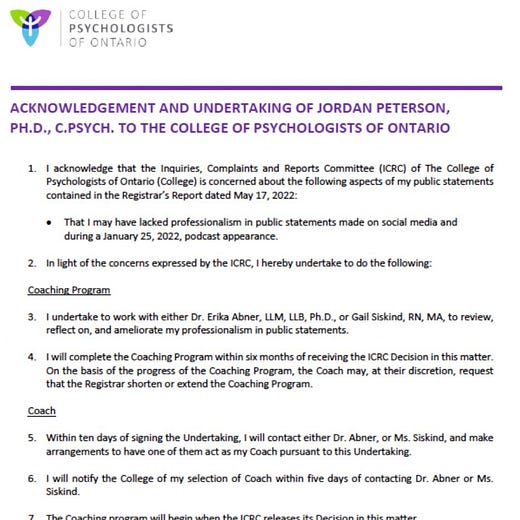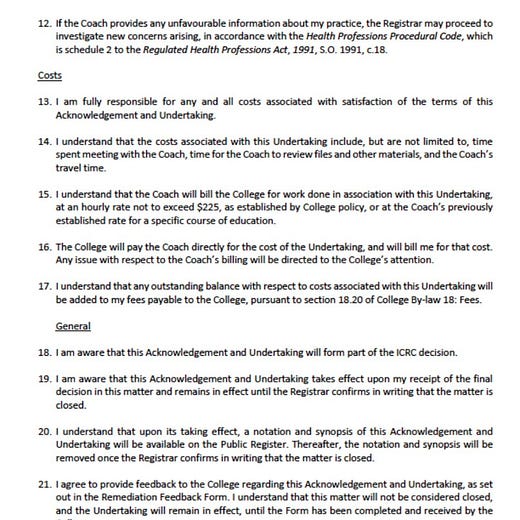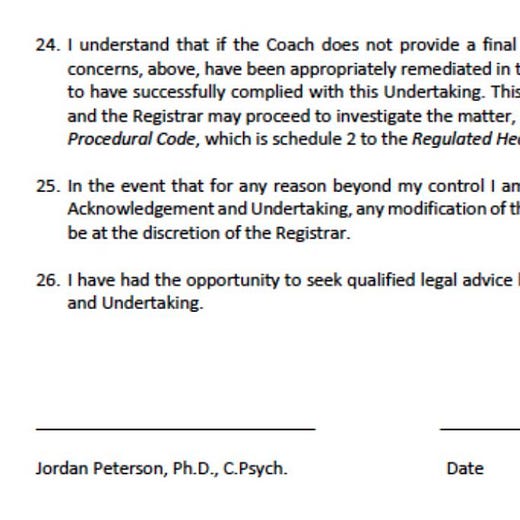To shape the world, you must master its building-blocks: words
Issue #125
The fortress was entered by tunnels in the rock, and, over the entrance to each tunnel, there was a notice which said:
EVERYTHING NOT FORBIDDEN IS COMPULSORY
He read the notice with dislike, though he did not understand its meaning.
—The Once and Future King by T.H. White
Union with Christ means participation in Christ. This is beautifully summed up in Amy Carmichael’s poem:
Hast thou no scar?
No hidden scar on foot, or side, or hand?
I hear thee sung as mighty in the land,
I hear them hail thy bright ascendant star,
Hast thou no scar?
Hast thou no wound?
Yet I was wounded by the archers, spent,
Leaned Me against a tree to die, and rent
by ravening beasts that compassed Me, I swooned:
Hast thou no wound?
No wound, no scar?
Yet as the Master shall the servant be,
And, pierced are the feet that follow Me;
But thine are whole: can he have followed far
Who has no wound nor scar?
One of the ways in which we participate in Christ, and are transformed into his image, is by reflecting his speech.
This is important for sanctification in general, but it has a unique power, because reality is shaped by the word of God. He brought forth creation by the word of his power, shaped it by the word of his power, and upholds it by the word of his power. If Christ is summing up all things in himself (Eph 1:10), will he not bring it into conformity to his will through the same power?
What we are saying is that God’s word does not merely reflect reality, it does not merely record reality, it does not merely report reality—it rather establishes reality. When that word is brought to bear upon us, it pierces and divides and refashions us. In conjunction with the Holy Spirit, the word does not return to God void, but accomplishes all of his purposes—chief of which is to form us into his image through the renewal and transformations of our minds.
Now we have received, not the spirit of the world, but the Spirit who is from God, so that we may know the depths graciously given to us by God, of which depths we also speak, not in words taught by human wisdom, but in those taught by the Spirit, combining spiritual depths with spiritual words. But a natural man does not accept the depths of the Spirit of God, for they are foolishness to him, and he cannot understand them, because they are spiritually examined. But he who is spiritual examines all things, yet he himself is examined by no one. For who has known the mind of the Lord, that he will direct Him? But we have the mind of Christ. (1 Cor 2:12-16)
Now this renewal does not happen merely by the word, but rather through the word lived out, as Romans 12:1-2 makes clear. There is no ongoing transformation of the mind from glory to glory without spiritual sacrifice in the body. But it begins with the word, and it returns continually to the word.
In the word are contained the true and righteous patterns of life and reality.
This might sound like a weird way of talking to the modern mind, but it is especially important in Current Year, where the world is hell-bent (we use the term advisedly) on both rewriting the dictionary, and redefining morality. In other words, on changing how we think about reality, and how we act in reality.
For example, the biblical term love has been twisted and weaponized in the last few years, first with gay mirage (which itself is in no way gay, by the original definition of that term), and second with covid mandates, where compliance was equated with loving your neighbor—and noncompliance, therefore, with hating him.
This redefining of words and morality goes hand-in-glove with normalizing a discombobulating (again, we use the term advisedly) and demoralizing kind of public discourse. How we are spoken to, and how we are allowed to speak, has been perverted and inverted more than ever before. And since discourse is what constitutes society, this is really just another way of saying that the nature of our very culture has been perverted and inverted more than ever before.
Various kinds of rhetorical parallax have become the norm, where the very same thing is either wonderful and praiseworthy, or nefarious and despicable, depending on whether the person in question is friend or foe. (Most of the strategies that Michael Anton lists in That’s Not Happening and It’s Good That It Is: A quick and dirty guide to regime propaganda, is one kind of parallax or another.) For instance, you have mostly peaceful protests, but a Capitol Insurrection. Or, people who died after getting covid are covid deaths, but people who died after getting the vax are mysteries. Or, to question puberty blockers is actual violence, but to dox the questioner and destroy his livelihood is upholding the public good. Or, inconvenient facts are conspiracy theories and misinformation, and propaganda is truth. You know how it works.
This is related to the firehose propaganda model:
We characterize the contemporary Russian model for propaganda as “the firehose of falsehood” because of two of its distinctive features: high numbers of channels and messages and a shameless willingness to disseminate partial truths or outright fictions. In the words of one observer, “[N]ew Russian propaganda entertains, confuses and overwhelms the audience.”
Contemporary Russian propaganda has at least two other distinctive features. It is also rapid, continuous, and repetitive, and it lacks commitment to consistency.
The reason all of this is so effective is that so few people know and trust God’s word. Our minds and actions will be formed and directed by something. When the word is not forming our minds and directing our actions, something will take that place. Indeed, there are always plenty of forces seeking to form and direct us—the question is whether there is something substantive already anchoring our souls to prevent it. Can we be easily blown about by the media’s winds of doctrine? Can we be channeled into the behaviors that social media is designed to condition in its subjects (once again, advisedly)?
What is shaping our lives?
Here is a simple example to illustrate the practical importance of this:
Scripture gives us a clear template for describing the world. What we mean is, scripture has a method for describing the world, and we are supposed to be shaped by that method.
The method is simple: it focuses on the overarching principles, the general rules, the “large facts.” Often, it speaks as if exceptions and nuances did not exist.
This is nowhere more apparent than in the book of Proverbs, which is essentially a field guide to exercising dominion, written by a king for his sons.
Why?
Is it because exceptions and nuances aren’t important?
Is it because God does not care about “the whole truth and nothing but the truth”?
Is it because precision and care with facts don’t matter?
Of course not.
It is because God has arranged creation in such a way that there is a center, and a margin—and the center is what holds things together. So when describing creation, a focus on the center, on the general rules, is of great importance to rightly ordering our minds; to conforming ourselves to the shape of the world, and putting the first things first.
Think about how completely our current society has reversed this order.
We are a culture of the margin—a culture that demands nuance—a culture where every exception is a matter of first importance. We identify ourselves by our differences, our aberrations, our perversions…and the only thing we will not tolerate is unqualified statements about general rules, ordinary patterns of creation, the overarching principles of nature.
We dare not “marginalize” anyone. Everyone has to be part of the center, not matter how bizarre, unnatural, extreme, or fringe they are.
We refuse to speak like God speaks, to shape our minds according to God’s word, and so we end up with clown world.
Consider a basic example: Paul’s words to Titus.
For this reason I left you in Crete, that you would set in order what remains and appoint elders in every city as I directed you. (Tit 1:4)
And yet in verse 12 he continues, elaborating the great need for elders in the churches:
One of themselves, a prophet of their own, said, “Cretans are always liars, evil beasts, lazy gluttons.” This testimony is true.
These are the words of Epimenides. But…if this testimony is true, as Paul says, how will Titus find suitable candidates for elders on Crete?!
The answer is simple: it’s a generality.
Paul, guided by the Holy Spirit, and with a mind shaped by prior scripture, understands how to identify central patterns and order his speech accordingly, without thinking that a focus on central patterns means the non-existence of marginal ones.
He is talking about the general nature of the Cretan cultural tendencies.
Here’s another simple illustration:
Poor is he who works with a slack hand,
But the hand of the diligent makes rich. (Proverbs 10:4)
Here is a modern reader’s takeaways...
Solomon is saying all poor people are lazy.
Solomon is saying all rich people are diligent.
Solomon creates a paradoxical dilemma by saying a “hand” is the source of both poverty and prosperity. What about people who lost their hands in accidents, or don’t even have hands due to a birth defect?
Solomon is being reckless in his speech, and hasn’t considered how it could be misread and cause harm and trauma. He needs more clarification and nuance. He should issue an apology.
Conform your mind to scripture, or it will be conformed to the world.
Reformation means recovering lost words (or inventing new ones)
As the dictionary continues to be redefined, our ability to think right thoughts is continually eroded.
Here is a great example from the draft of It’s Good To Be A Man, which we cut in the final version:
For this reason I bow my knees before the Father, from whom every patria in heaven and on earth derives its name… (Ephesians 3:14-15)
Wilfred Owen was a poet who lived through the First World War. He wrote a famous poem called Dulce Et Decorum Est, which concludes:
My friend, you would not tell with such high zest
To children ardent for some desperate glory,
The old Lie: Dulce et decorum est
Pro patria mori.
The Latin translates literally, “A sweet and fitting thing it is, for your patria to die.”
What is a patria? In your Bible, it is probably translated “family” in Ephesians 3:15. In Owen’s poem, if you studied it in high school as I did, it is generally translated “country.” But in both Latin and the Greek New Testament, it means both these things—and more. Patria is one’s lineage or ancestry; it is one’s race or tribe; it is those who lay claim to your common origin; it is your family, your people, your nation. Patria is the body that gives you identity.
This helps to illustrate the difficulty we have in much of the writing we do. There are some concepts which are simultaneously essential to the natural order that God created, and yet so lost to us in the modern world, that we literally do not have words for them any more.
The words we must use instead are pale shadows of the full meaning. It is like having a cube, but only having the word “square” to describe it. And in the case of patria, not only is it impossible for English to capture its essence, but it cannot point beyond it to its origin either.
In both Latin and Greek, the word patria derives from the word for father.
As Chris Wiley puts it in The Household and the War for the Cosmos, “in the Greek-speaking world of the first century you literally could not say family without saying father.”
Why is this lesson on a random point of language important? Because in the beginning was the Word—and we are people of the Word. To accurately know reality as God made it, we must be able to describe it.
And to accurately conform ourselves to reality as God made it, we must first know it.
Notable:
Jordan Peterson: I will risk my licence to escape social media re-education
A recent example of rhetorical parallax and the fight over words comes from Jordan Peterson, who is being pressured to take social media re-education or lose his license to practice:
What exactly have I done that is so seriously unprofessional that I am now a danger not only to any new potential clients but to the public itself? It is hard to tell with some of the complaints (one involved the submission of the entire transcript of a three-hour discussion on the Joe Rogan podcast), but here are some examples that might produce some reasonable concern among Canadians who care about such niceties as freedom of belief, conscience and speech:
I retweeted a comment made by Conservative Leader Pierre Poilievre about the unnecessary severity of the COVID lockdowns;
I criticized Prime Minister Justin Trudeau;
I criticized Justin Trudeau’s former chief of staff, Gerald Butts;
I criticized an Ottawa city councillor; and
I made a joke about the prime minister of New Zealand, Jacinda Ardern.
I did all that “disrespectfully,” by the way, in a “horrific” manner that spread “misinformation”; that was “threatening” and “harassing”; that was “embarrassing to the profession.” I am also (these are separate offences) sexist, transphobic, incapable of the requisite body positivity in relationship to morbid obesity and, unforgivably of all, a climate change denialist.
For criticizing our prime minister and his cronies and peers, for retweeting Pierre Poilievre, the leader of the official Opposition in Canada, and for holding and for daring to express reprehensible political views, I have now been convicted by the College of Psychologists of “harming” people in some manner serious enough to justify my forced re-education. Now that I have refused, I will definitely face further exceptionally public, demanding, time-consuming and expensive disciplinary action, including the suspension of my licence. This, despite the fact that none of the people whose complaints are being currently pursued were ever clients of mine, or even knew clients of mine, or even knew or were acquainted with any of the people they claim I am harming. This, despite the fact (and please attend to this) that half the people who levied such complaints falsely claimed that they had in fact been or currently are clients of mine...
Here’s a related tweet thread worth checking out for more information:
The “Toxic Male Gaze”: Should men staring at women be illegal?
Speaking as a woman, I am always fascinated by the double standards exhibited by women with respect to male behaviour. We are only interested in being looked at by men if we find the said man or men to be attractive to us. This means that we can be potentially offended by the gaze of any man who falls into the following short list:
· Men we don’t know
· Men who we don’t find attractive
· Men who we feel are “punching above their weight” with regard to giving us their attention in this way
At the same time, the curious paradox is that, in spite of our assertions that we don’t need male attention (see the Toy Story 4 Bo Beep character, developed by feminist writers) and that we want to be taken seriously as we pursue our careers, we still take a lot of trouble to look attractive to men. This behaviour can start very young and persist into later adulthood. Teenage girls growing up in the 2000s are still hitching up their skirt waistbands as they come out of school on an afternoon. Teenage girls clubbing at the weekend still dress as provocatively as possible (if the ones I see on late night trains on a regular basis are anything to go by). Why dress in this way if we don’t want to be looked at?
An insight into how guru/influencers operate:
It is precisely because a father is dangerous that children value his presence in the family—not because he is dangerous to them but because he is dangerous to the sin and chaos that threatens the harmony of the household.
—From our book, It’s Good To Be A Man
In 2023, be a dangerous father to the world.
Talk again next week,
Bnonn & Michael





